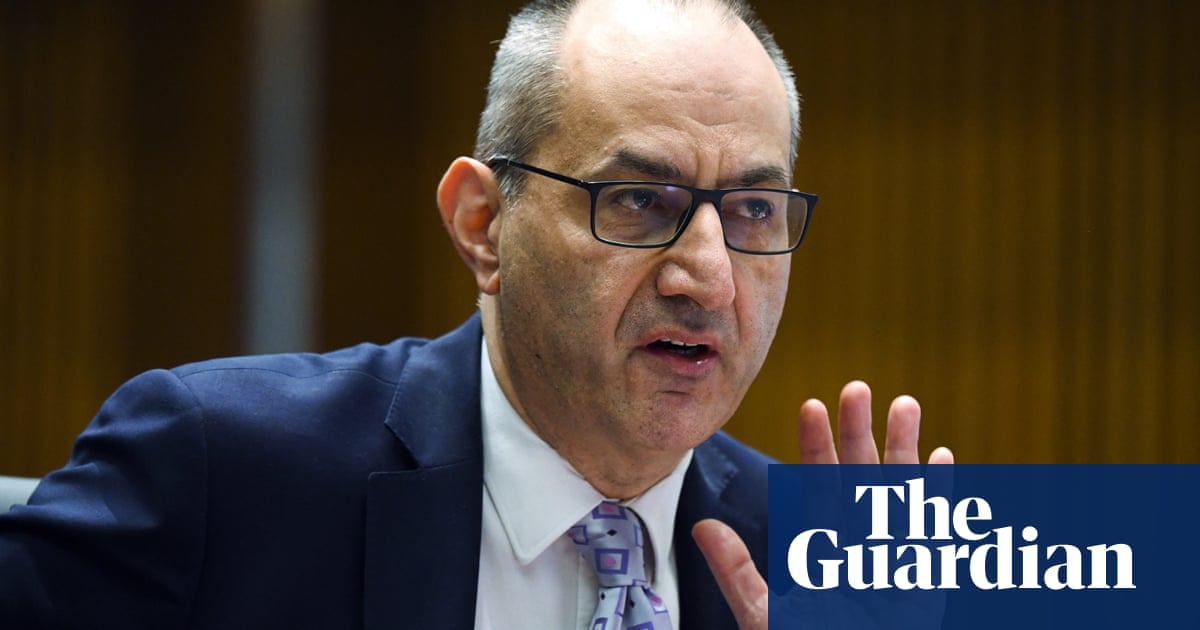
Australia needs a comprehensive national plan for war – a “war book” – to coordinate civil and military roles and “focus the national mind” on the possibility of future conflict, the former secretary of the home affairs department Mike Pezzullo has said.
In a speech to an invitation-only security seminar last week, Pezzullo said Australian leaders needed to resurrect a practice adopted in the 1930s and prepare “a war book” which clearly allocated roles and responsibilities in the event of a conflict.
“As a practical suggestion to focus relevant effort, we should consider modernising the earlier practices from the 1930s and then again from the 1950s, of the preparation of a war book,” Pezzullo told the seminar hosted by the Sir Richard Williams Foundation in Canberra on 11 April.
“The war books of those times were guides on what would need to be done and by whom, in the event of war. Preparing a new war book would help to focus the national mind.”
The speech constituted the former departmental secretary’s first public remarks since being removed from his job late last year after an independent inquiry found he had breached the government’s code of conduct at least 14 times. Sections of Pezzullo’s address to the seminar were published this week in an online defence publication Second Line of Defense, or SDL. Guardian Australia understands the quotes published on the site are accurate.
Pezzullo told the gathering of defence industry representatives and security specialists he envisaged such a war blueprint would deal with “the entire span of civil defence and mobilisation which would be required to move to a war footing”.
He said military planners were focused on preparing the Australian Defence Force to be deployed to nearby small countries quickly and at short notice but, while necessary and important, “such ventures would only be marginally relevant to today’s great issues of war and peace”.
“The most important question is whether a nation at large has the structures, capabilities and above all the mindset and the will that are required to fight and keep fighting to absorb, recover, endure and prevail. These cannot be put in place or engendered on the eve of the storm.”
Three years ago Pezzullo wrote a controversial Anzac Day message to his then departmental staff, warning that “the drums of war” were beating.
In a separate new interview for the Meridian100 podcast, released on Thursday, Pezzullo insisted his comments in the Anzac Day message had been misconstrued as suggesting war was inevitable.
Pezzullo told the journalist Paul Maley on the podcast the core of his 2021 message was that “we have to gird ourselves for the possibility of major war”.
“I made no statement or I made no claim in my staff message that war in the Indo-Pacific was either likely, inevitable or indeed a possibility, – it just simply avoided that,” Pezzullo said.
“It was more about war in general and ‘is our society ready for the idea?’ Not just reflecting on war in the past but it’s something that we have to potentially consider for the future. And it’s just not clear to me that we’ve got the right mindset. As shocking as the thought of that is, I’m not sure that we’ve got the right mindset to anticipate that.”
after newsletter promotion
Pezzullo told Maley Australians “shouldn’t have the concern of war just artificially or synthetically drummed up”. But contemplating some possible scenarios of conflict across Asia, he wondered whether Australia was capable of holding back a threat.
In last week’s seminar speech, given before the podcast’s release, Pezzullo emphasised the need for national preparation for conflict. He said a “war book” would consist of a range of coordinated plans.
“Some would deal with critical infrastructure protection and national cyber defence,” he said. “Other plans would deal with the mobilisation of labour and industrial production, covering supply chains, industrial materials, chemicals, minerals and so on.”
Pezzullo said sectoral plans would address the allocation, rationing “and or stockpiling” of fuel, energy, water, food, transport, shipping, aviation, communications, health services, pharmaceuticals, building construction resources and other products and services.
“They would also be plans for the protection of the civil population covering evacuation, rapid fortification and or shelter construction, and for augmenting police fire, rescue and ambulance capacities and also dealing with social cohesion, border security, domestic security and public safety.”
Pezzullo told the seminar Australia could draw lessons from international experience, especially the current wars in Ukraine and the Middle East, as well as from natural disasters and the supply-chain vulnerabilities exposed during the pandemic.
“Noting, however, that war is different.”
Read More: World News | Entertainment News | Celeb News
Guardian









